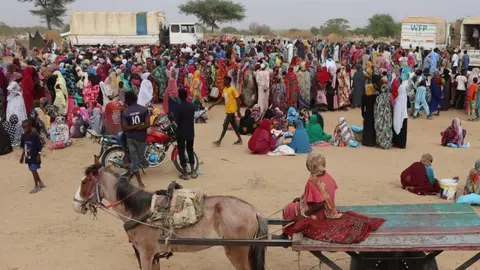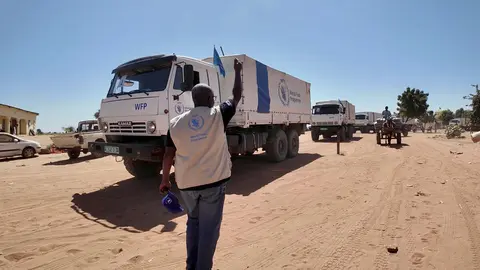The ongoing conflict in Darfur
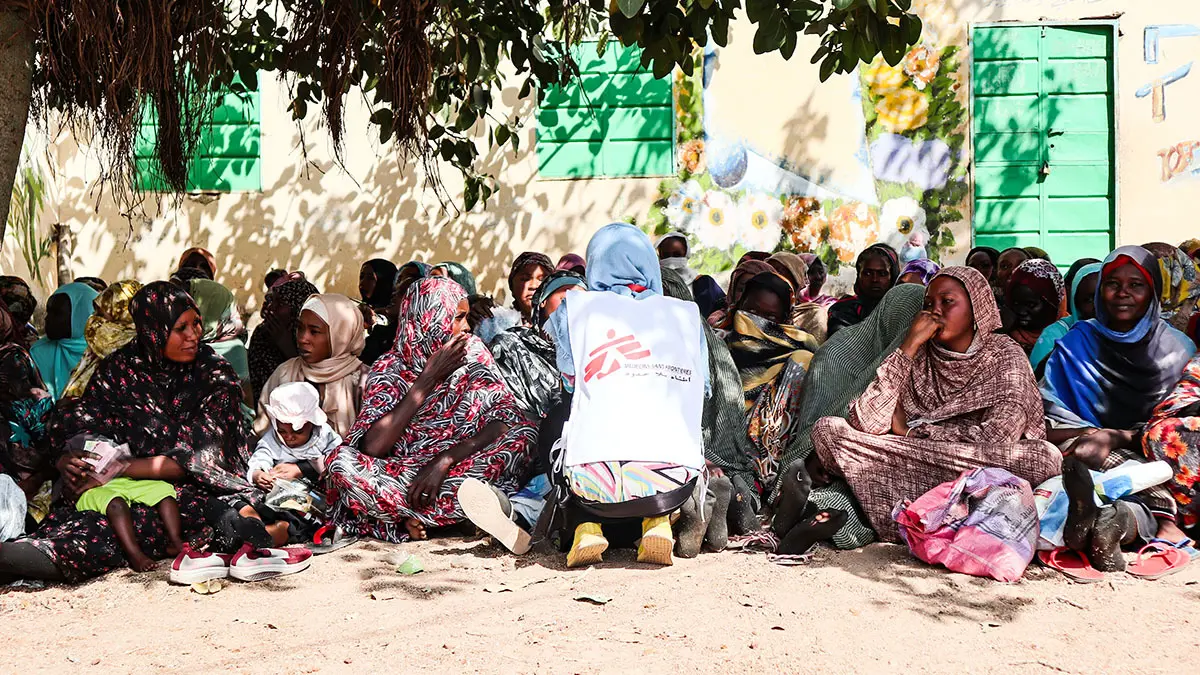
- The violence has not disappeared; it has simply changed form
- The humanitarian and health collapse
- Food insecurity
- Sexual assault
- The world's silence
- The response from within
Médecins Sans Frontières (MSF) has published a report on the human catastrophe unfolding in Darfur since the start of the conflict between the Sudanese army and the Rapid Support Forces (RSF). It is hoped that 2025 will be the year when the world listens and when the protection of civilians ceases to be the exception and becomes the norm.
The violence has not disappeared; it has simply changed form
In 2023, entire neighbourhoods were razed by bombing, reducing homes to rubble and wiping out entire families. In al-Fasher, 32-year-old Samira recalls how a shell hit her neighbour's house, killing his son, and how, on the same day, another explosion in a mosque killed seven worshippers who had just finished praying. ‘My husband died sad,’ she says. 'We didn't have the money to leave the country. Since then, I haven't slept. My throat feels like it's being strangled,' she says in anguish.
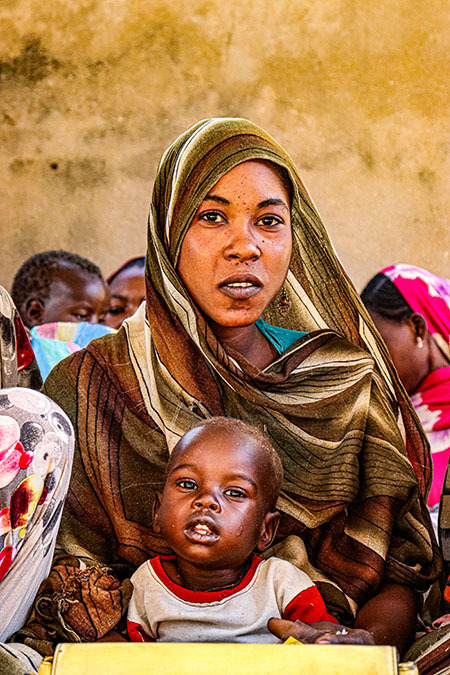
Although ground fighting in this area has ceased for now, the roads, markets, farmland, and even homes have become territories of violence, insecurity, and humiliation. Displaced persons, especially those from certain ethnic groups, are detained, beaten, and stripped of everything they own. Armed teenagers, some as young as thirteen, intercept vehicles, interrogate, insult and torture people. A woman fleeing with her children and brothers from Tawila was forced to lie on the ground and watch as her brother was brutally beaten after being falsely accused of belonging to the FAR. ‘They called us slaves,’ she says. They said, 'Come here, slave; go there, slave'.
Access to basic rights disappears. Halima, 26, displaced since 2003, lives in Kas with her children. ‘The little I earn washing clothes or working in the brick industry I use to eat or to pay for medicine on credit. Schools are closed. Education no longer exists,’ she says.
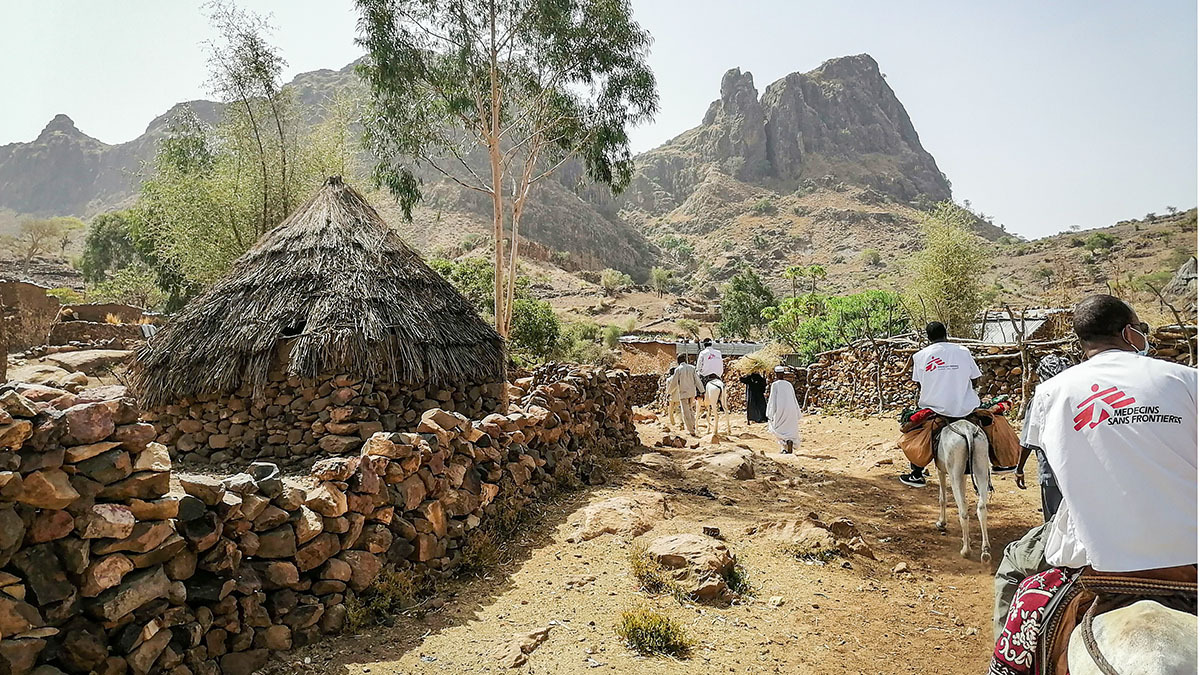
The humanitarian and health collapse
In January 2024, when the MSF team managed to access Nyala (the capital of Darfur state), they found a devastating picture of a health system in ruins. The Teaching Hospital, the referral centre for South Darfur, was partially destroyed, with collapsed roofs, bullet-riddled walls and looted medical equipment.
In early 2025, MSF continues to work to rehabilitate other sections of the hospital – such as the laboratory, the surgery unit and the wards – and to promote community and rural programmes. But progress is fragile and depends on a volatile security context and the willingness of the authorities to allow humanitarian access.
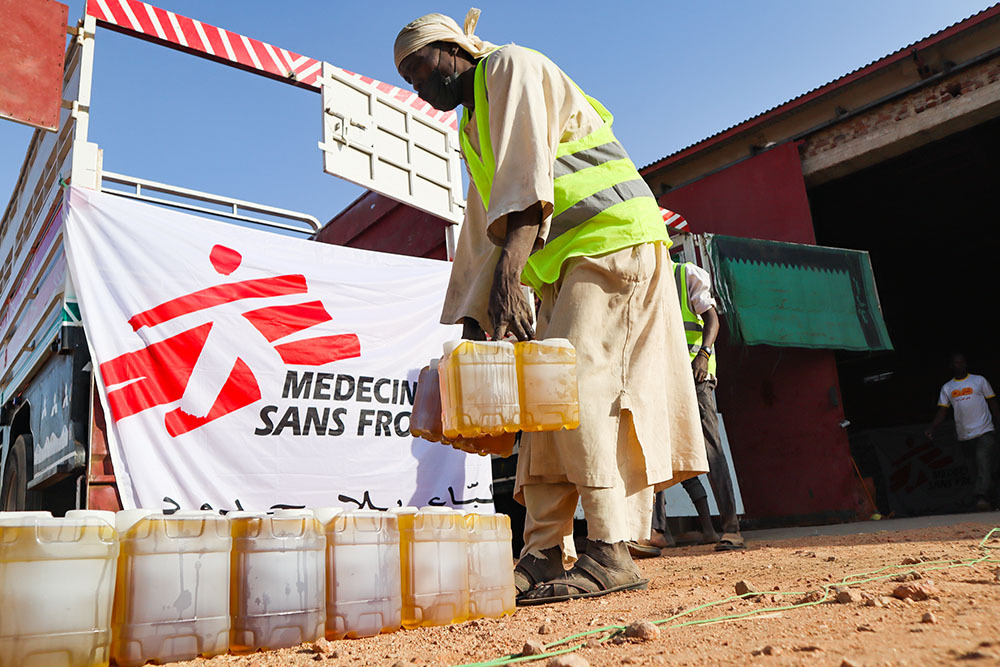
In a context of high demand and minimal resources, bed occupancy reached alarming levels: 328% in the maternity ward and 207% in paediatrics in October 2024, multiplying the risks of infection and serious complications without adequate care. In fact, between March and November of that year, at least 51 women died from preventable causes such as sepsis, postpartum haemorrhage, eclampsia and malaria. Some had given birth at home without assistance, others in private clinics without minimum hygiene conditions or technical capacity.
In fact, maternal death is one of the most worrying issues in this crisis. The number of women's deaths between March and November mentioned above represents 44% of all maternal deaths recorded in the Dutch section of MSF's global maternity programmes in 2023, reflecting the magnitude of the collapse in a single hospital. The lack of contraceptives and the increase in child marriages, driven by the economic crisis, are also raising the risk for girls and adolescents whose bodies are not ready for pregnancy.
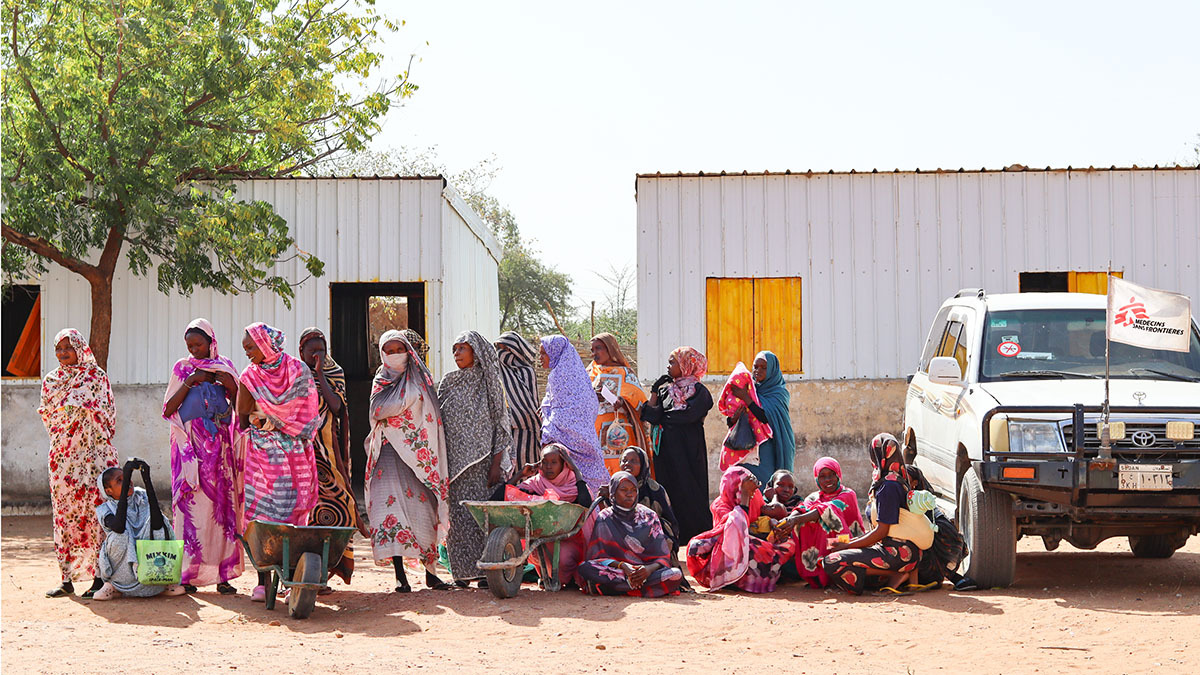
Although MSF has managed to reduce maternal mortality since August by opening community clinics and improving obstetric care, in many areas where there is no ongoing support, such as camps near Nyala or rural areas such as Jebel Marra, dozens of deaths continue to be reported without the women ever seeing a doctor.
Many people, not just pregnant women, cannot afford medical treatment or travel to the few centres that remain open. Even when they manage to get there, they are faced with a lack of medicines and staff shortages. 'Before the war, there were hospitals where you could get free treatment. Now there is only one left in the centre, and when we go, they tell us there are no medicines, or to come back another day,' says a displaced woman.

Another serious challenge is the lack of access to medicines, a situation that worsens the health of patients and displaced people arriving at hospitals in South Darfur. The inability to generate income prevents many people from affording the treatment they need.
So far, MSF has been unable to provide care for non-communicable or chronic diseases such as cardiovascular disease, cancer, chronic respiratory conditions and diabetes. These diseases were already common in Sudan before the outbreak of the conflict, but now access to treatment is virtually non-existent or completely inaccessible.
Video of Christopher Lockyear, MSF Secretary General, giving an overview of the situation in South Darfur (recorded in December 2024).
https://media.msf.org/Share/5588n25m400f3vl52k57a81qw0d4uye5
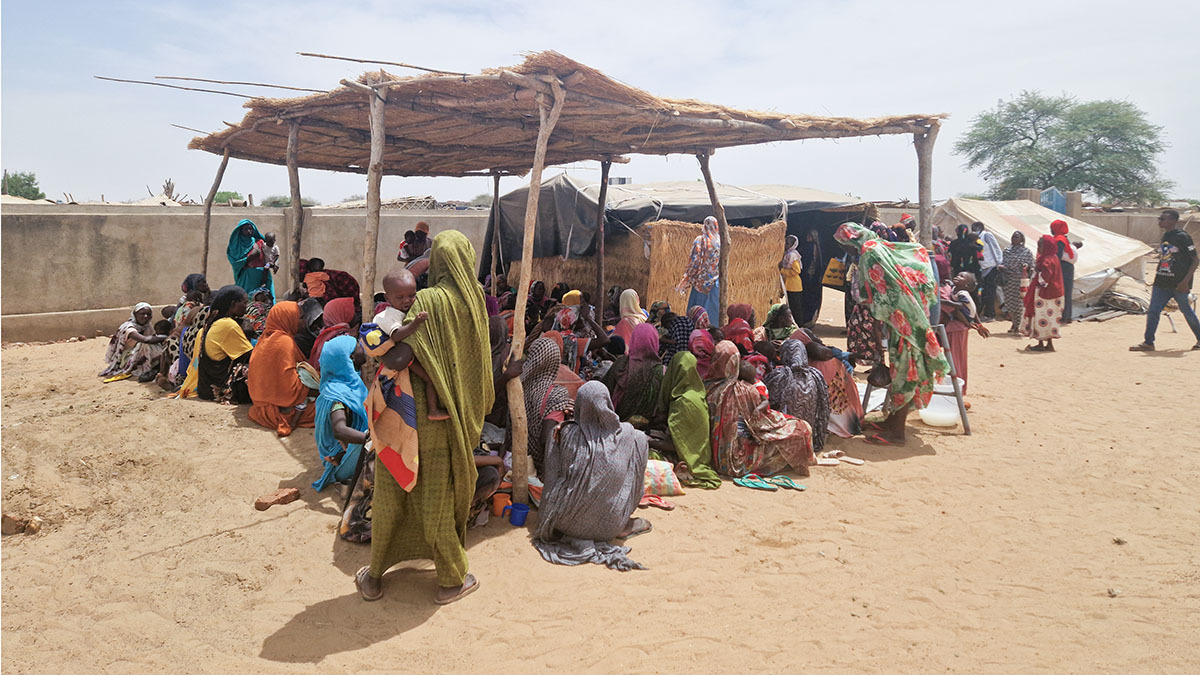
Food insecurity
Access to markets and farmland has become impossible for many families, whether due to the destruction of crops by war, fear, displacement or inflation, which makes even the most basic products unaffordable. ‘Our farms are completely destroyed, we have nothing,’ said a 21-year-old woman in the town of Beleil.
A survey conducted in April 2024 revealed alarming data: 7.9% of children in the Otash displacement camp were suffering from global acute malnutrition, a figure only slightly lower in Beliel (7.6%) and also worrying in South Nyala (3.5%). MSF confirms that among those affected by this disease between January 2024 and March 2025, 10,659 were children under the age of five.
In response, the organisation implemented a food support programme for 6,000 families. ‘It is unusual for us to distribute food,’ they explain. ‘But it was clear that it was necessary.’ Even so, the outlook remains bleak. The organisation warns that the food crisis could worsen with the imminent arrival of the rainy season and the consequent increase in food prices.
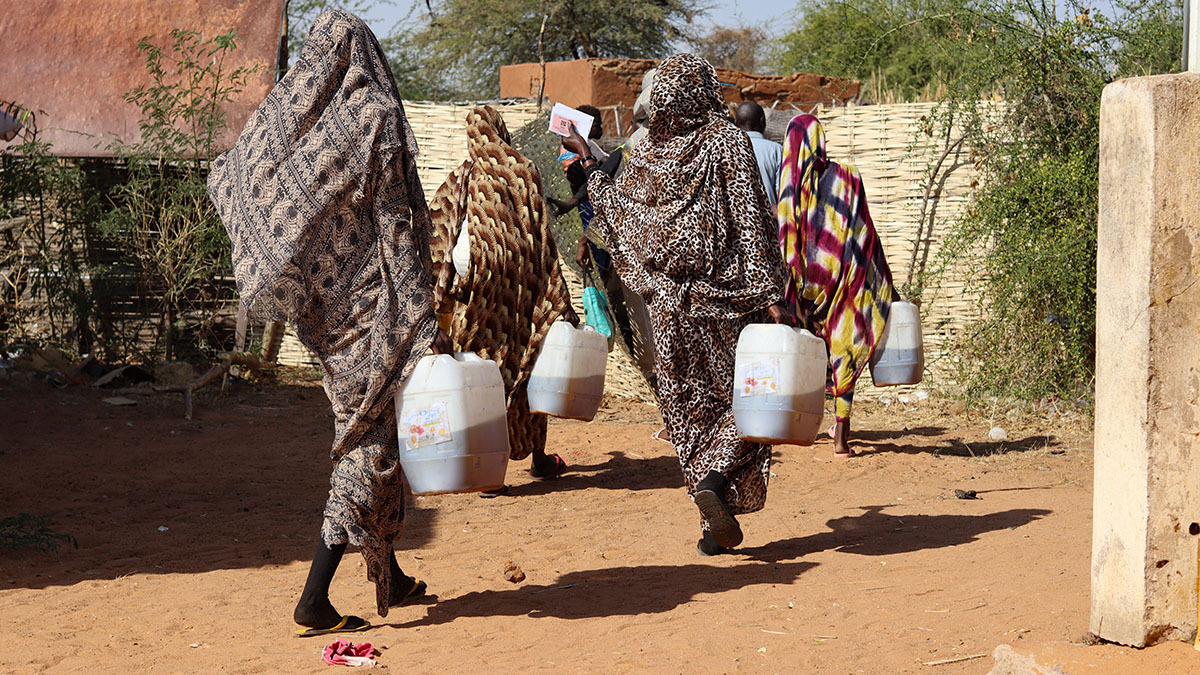
Other testimonies gathered in the displacement camps put a face to the statistical drama. ‘If I get something, we eat. If not, we wait until the next day,’ says Mariam, from al-Salam. Another woman, aged 40, recounts: ‘I didn't eat yesterday, and I haven't eaten today either. I wash dishes and get leftovers.’
The lack of food is compounded by the shortage of clean water. MSF has therefore also rehabilitated the main water station in Nyala and repaired more than 200 hand pumps, restoring basic access to drinking water in some areas of the city.
Broll on child malnutrition in South Darfur (recorded in April 2025):
https://media.msf.org/Share/23355yk02g50m75i4161l4a12jy8c8b4
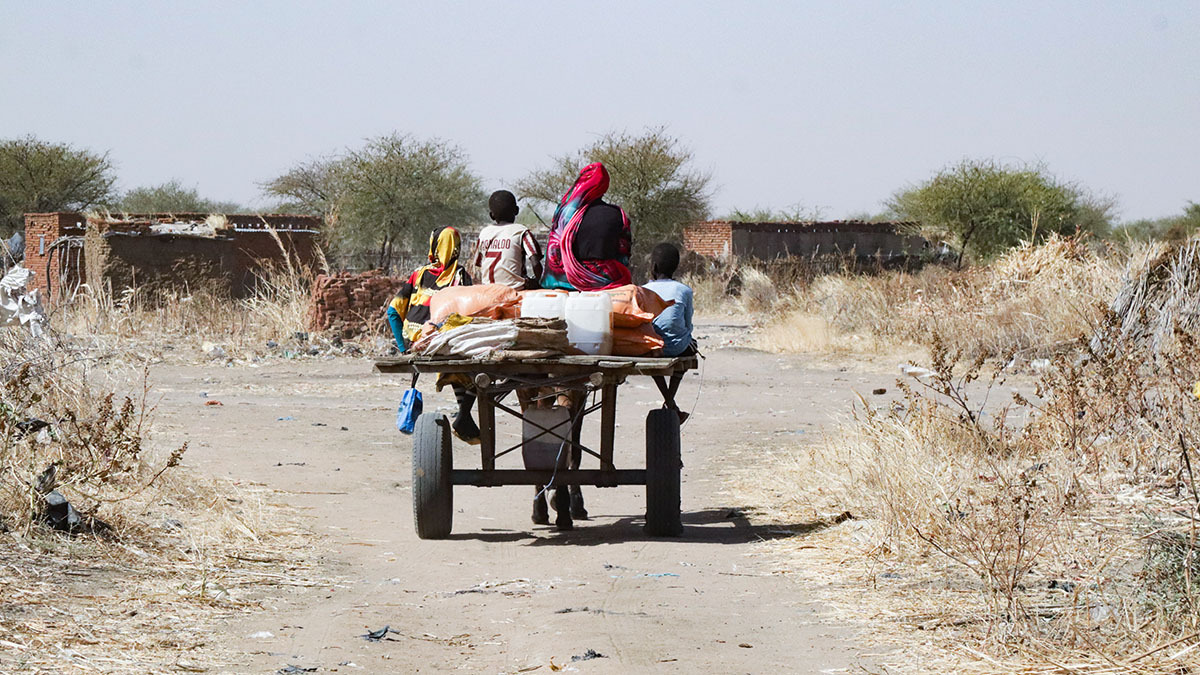
Sexual assault
Between January 2024 and March 2025, MSF treated 659 survivors of sexual violence. The vast majority, 94%, were women and girls, some as young as five. More than half of these attacks (56%) were perpetrated by members of the armed forces or armed groups, and 7% by criminal gangs. In many cases, the victims were not only raped, but also beaten, tortured or forced to work under threat.
The most common places where these attacks occurred were not in combat zones, but in everyday spaces: the countryside (34%), on the way to fetch firewood or water (16%), and even in their own homes (16%). ‘I used to work alone on small plots of land because spending more time away is dangerous... I'm afraid of encountering young men like those who attacked women in Nyala. That's why I always go out with other girls,’ says a woman from Kalma.
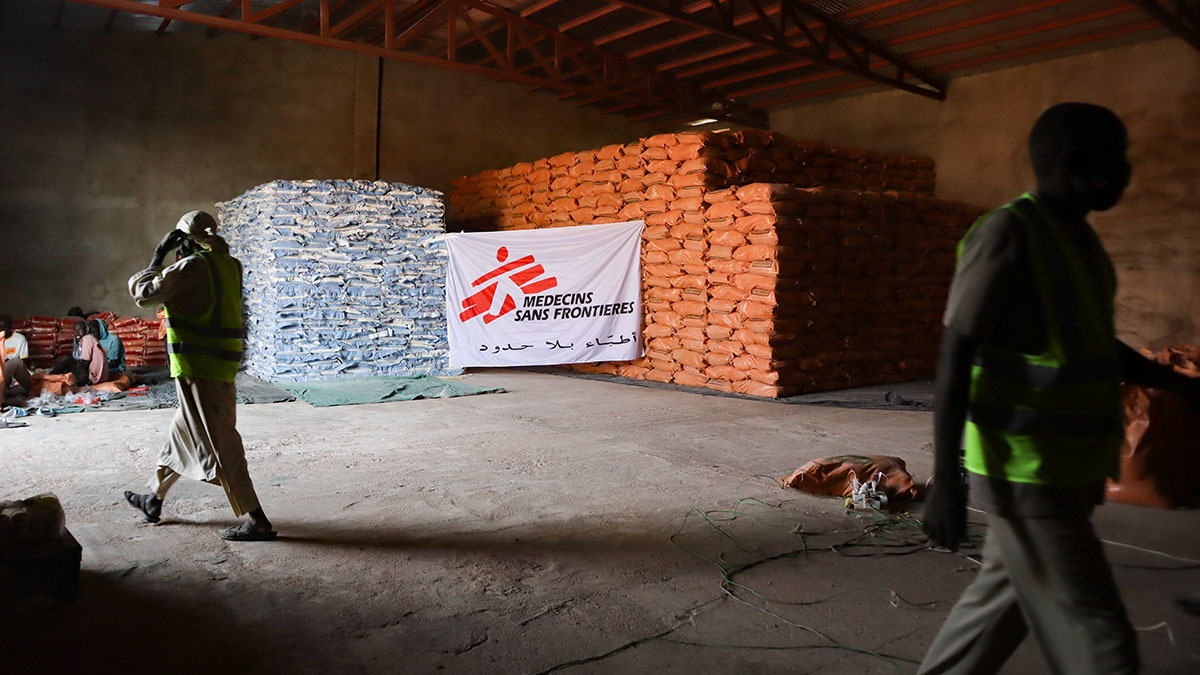
In this context, MSF integrated care for victims of sexual and gender-based violence (SGBV) into all its medical services. At the end of 2024, it began implementing a community-based model that trains diverse staff and local actors to provide emergency contraception, psychological first aid and safe medical referral. Since then, the number of cases treated has multiplied: in December 2024, MSF assisted 120 survivors, an increase of 287% compared to October.
Many women do not access medical care for fear of reprisals or stigmatisation. Some are not even aware of the medical consequences of rape. Others cannot afford the journey to a health centre or fear being attacked again on the way.
‘We are displaced people, and you never know who is who,’ reflects one woman. This sentence sums up the climate of terror and mistrust that pervades daily life in South Darfur, where simply being a woman, poor and displaced is enough to be targeted.
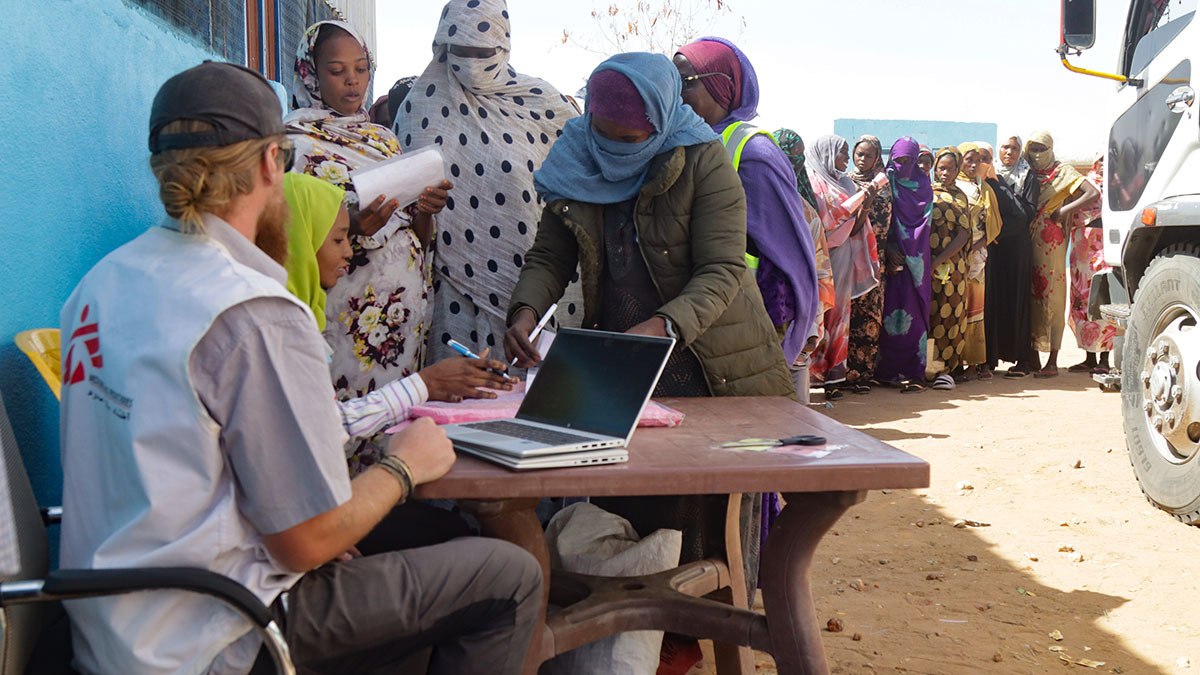
The world's silence
Although the flow of humanitarian aid has increased in some areas, the main UN agencies are still not present on the ground in this region, and international NGOs are moving forward cautiously. Nyala, which for years was the logistical and operational centre for humanitarian action in Darfur, now only has closed UN offices and deserted distribution centres.
‘We can't grow anything, we can't bring anything for our children. If MSF could help us more, that would be good. We have no one else to turn to,’ says a displaced woman in Kas.
In addition, the passage of aid from Chad, the only available route, is subject to complicated authorisations from the Sudanese government, which delays or blocks the arrival of food, medicine and other vital supplies.
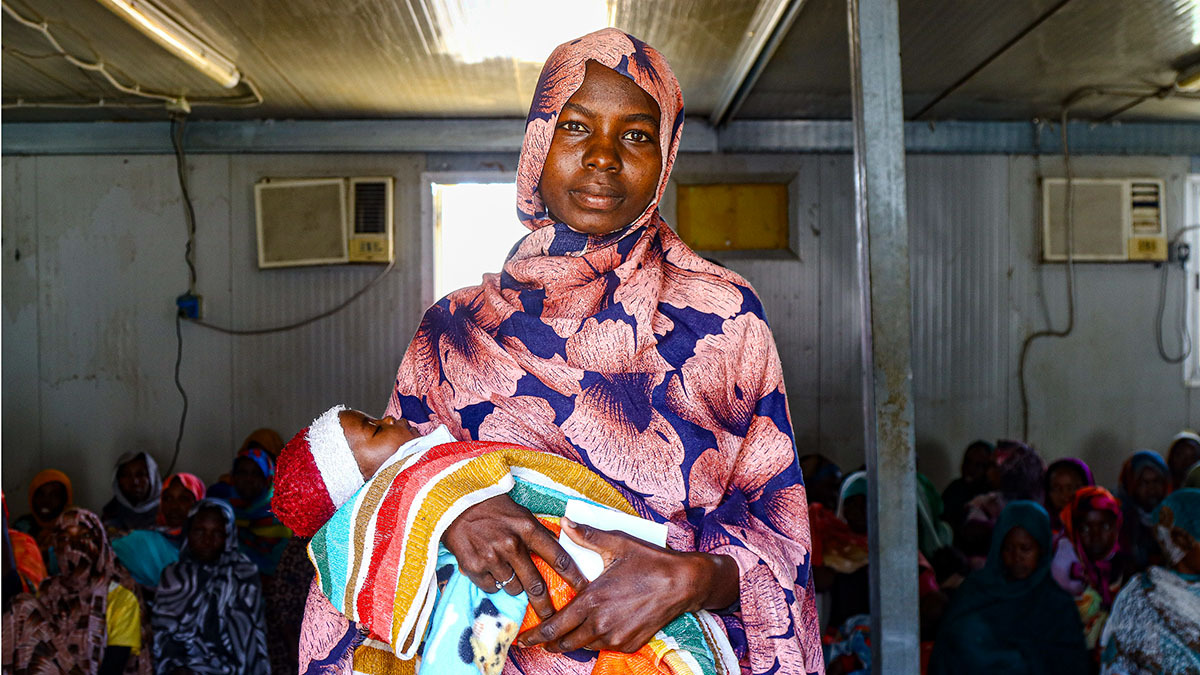
The response from within
Faced with abandonment, the local population has created aid networks. MSF began providing grants of up to 15,000 dollars to local initiatives: school canteens, health posts and community kitchens. The aid is little, but it shows what is possible if those on the ground are directly supported.
'Romanticising resilience is dangerous,' warns MSF. 'Communities are running out of resources. They cannot be left alone.'

